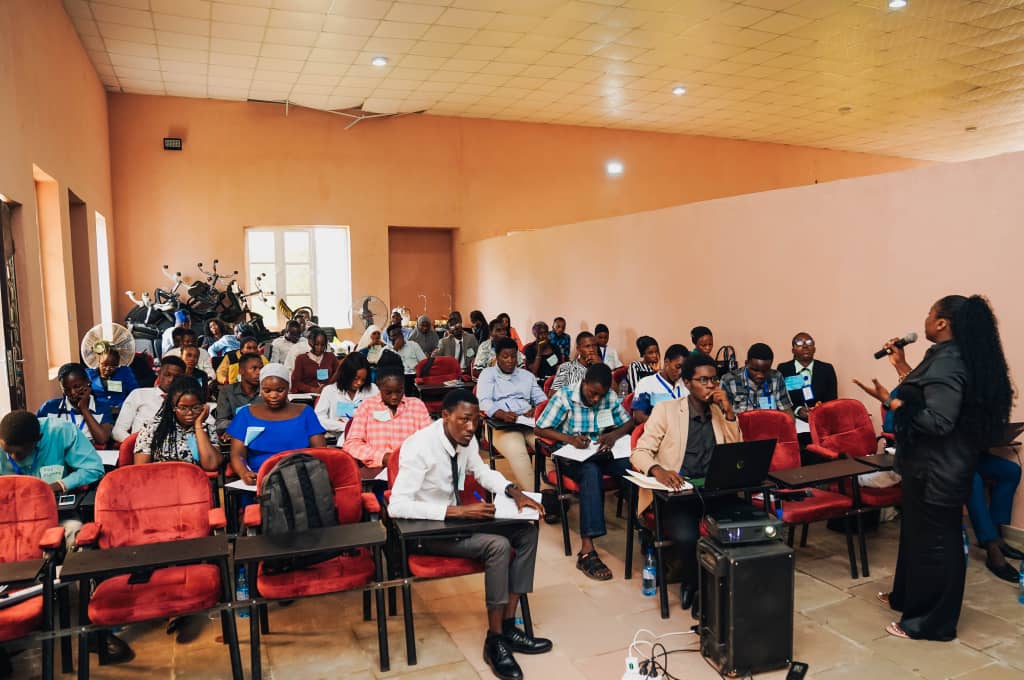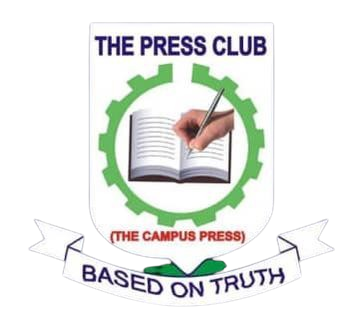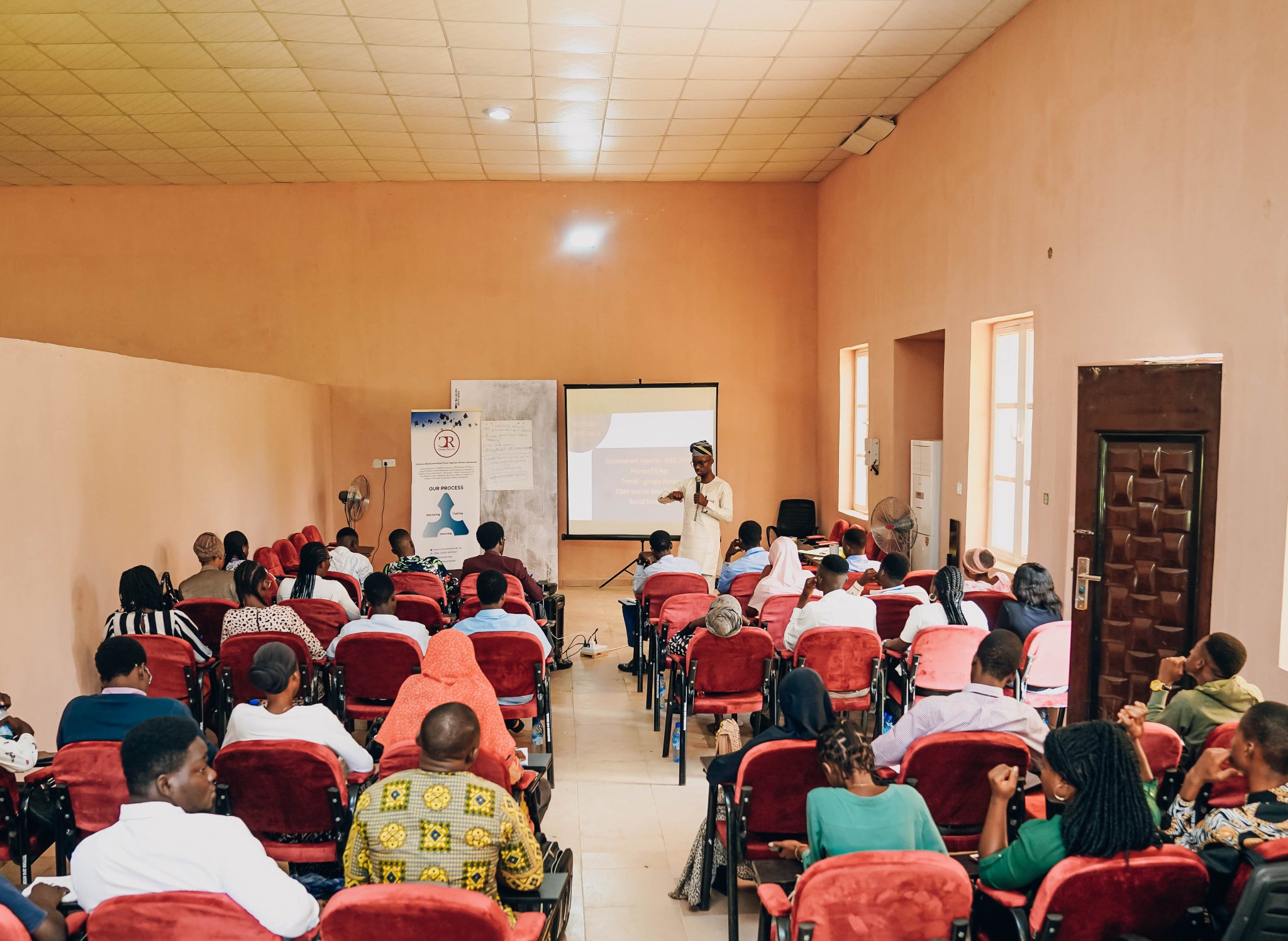
Oguntoye Sodiq
The Campus Reporter team of the Centre for Journalism Innovation and Development, (CJID) has trained 40 Campus journalists in Moshood Abiola Polytechnic, Abeokuta, Ogun State.
The four-day intensive training took place at the institution’s skill acquisition center from Tuesday, 5th September to Friday, 8th September, 2023.
Campus Reporter is a learning platform for student journalists, built on the principles of evidence-based ethical reporting and youth engagement initiatives on campuses across West Africa.
Since its inception in 2017, The Campus Reporter project has effectively trained over 3,500 students from 34 different West African institutions, the MAPOLY training marks the 35th school to be trained for this project, where participants were trained by seasoned journalists from leading media organizations like Premium Times, BBC, and Campus Reporter.
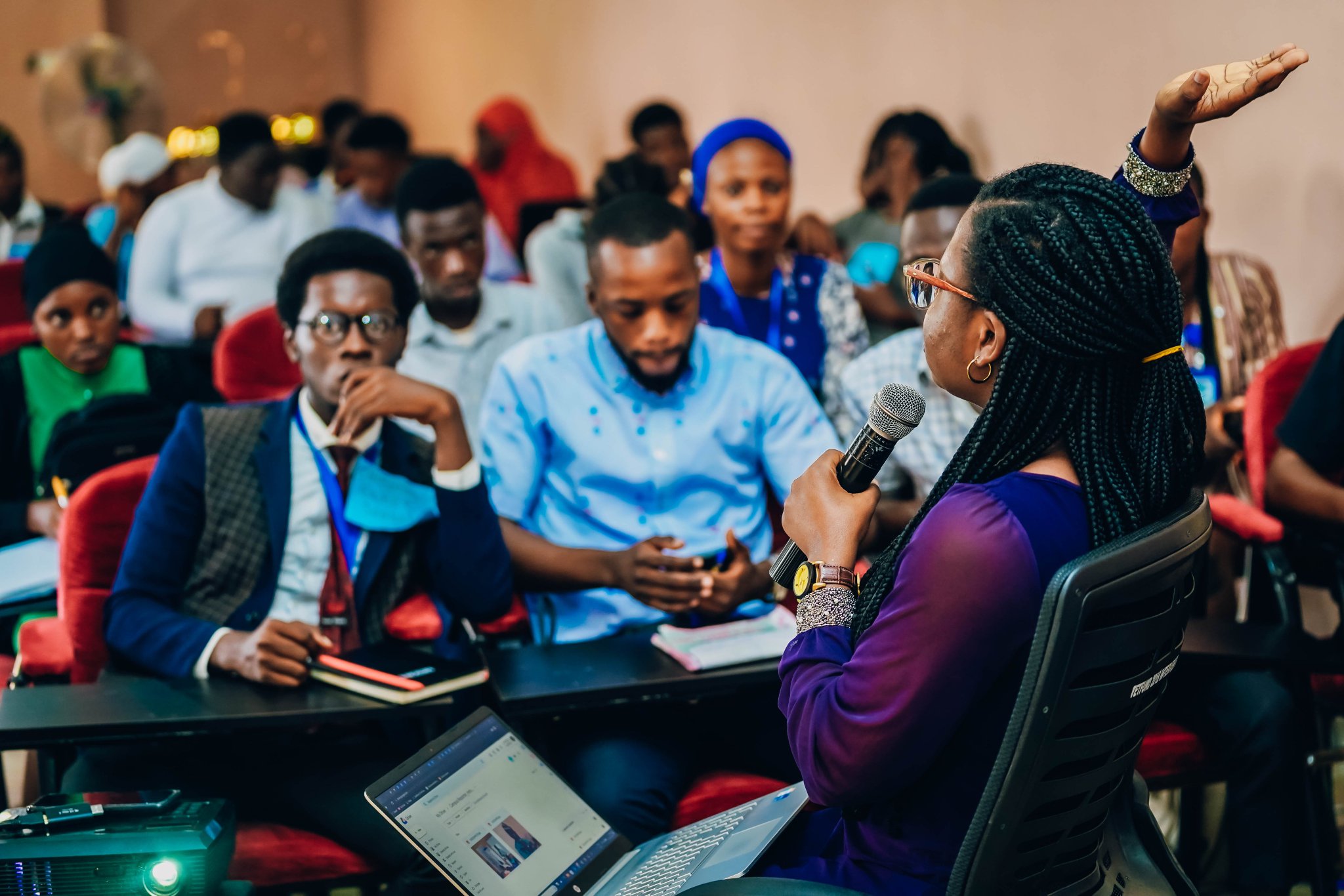
Participants were trained in news gathering and tools for investigative reporting, understanding the Freedom of Information Act, Data Journalism, Solutions Journalism, Fact-checking, Media Ethics, professionalism – Campus Journalism Best Practices, and Gender Transformative Approach to Storytelling.
The training also encompassed practical sessions, multimedia tools for Investigative Journalism, effective use of tools like Grammarly for editing, Google Docs for collaborative works, the use of Google Drive, and photo and video editing, among others.
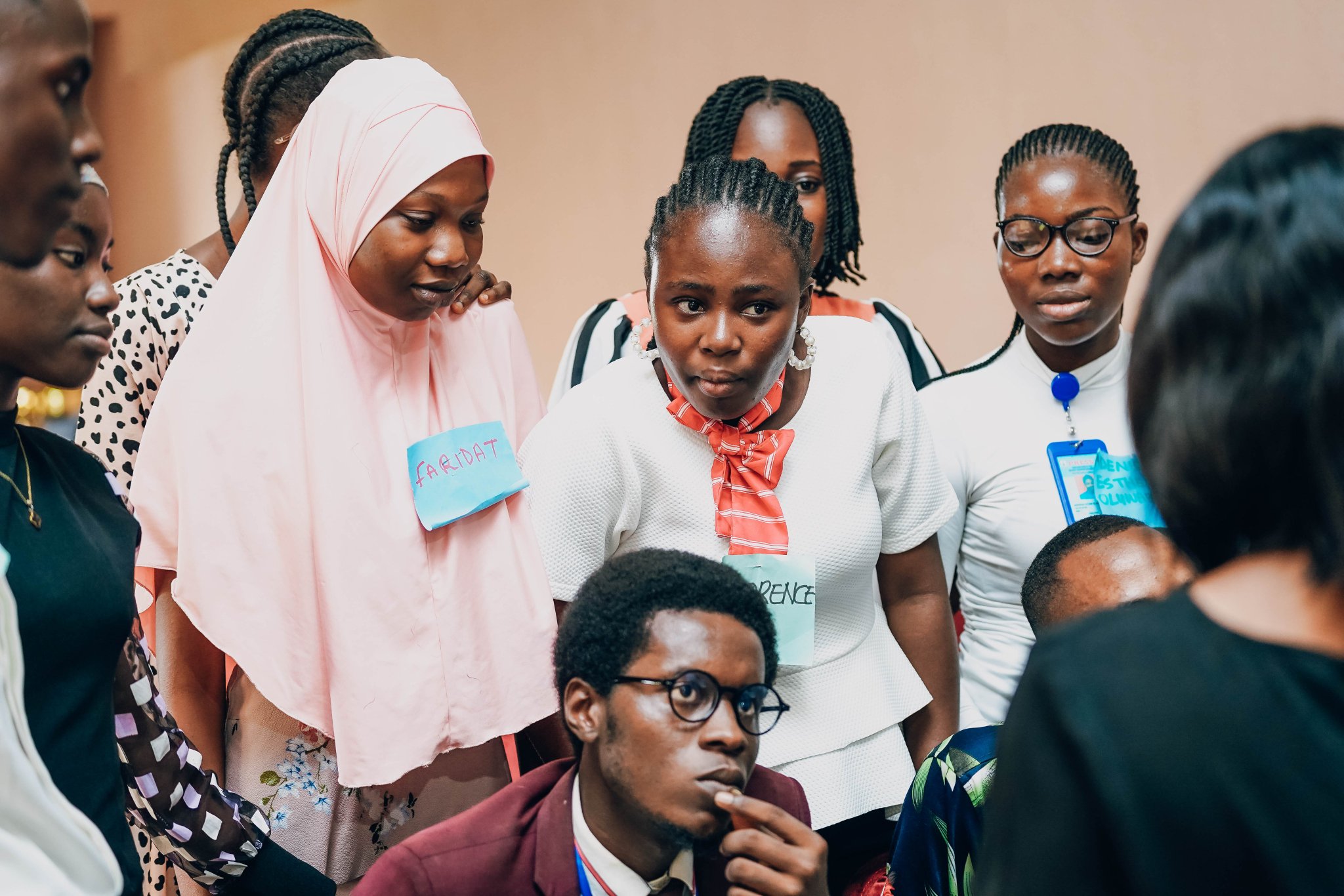
The participants were split into four groups and asked to spotlight issues affecting them and report them. At the end of the four-day training, the participants submitted the first draft of their reports, which reflected what they had been taught since the beginning of the training.
The facility analyzed the reports, updated them, and gave feedback on what needed to be improved upon.
“…We have successfully achieved our goals”
The Deputy Director of the Journalism program, CJID, Ms. Bisola Ajibola, announced the achievement of their objectives during the training. She expressed satisfaction in witnessing the transformation of initially reserved students into actively engaged participants.
Her words: “We achieved our aim of organizing this training. Though on Day 1, the group of students were reserved in their shells and not speaking; as days went by, we saw how they unraveled and incorporated knowledge on Data Journalism, Ethics, Source Mapping, Fact Checking, and Gender Inclusion, in their stories after returning from the field.
“They demonstrated the power of not just evidence-based reporting but what young people can do if we equip them with the capacity that they need.”
She said participants were tasked with fieldwork assignments, enabling them to apply their newly acquired knowledge in sourcing, gathering, and composing news stories within a tight timeframe.
Ms. Ajibola emphasized that the submitted reports showcased not only the potential of effective reporting but also the remarkable capabilities of young individuals when provided with the necessary skills.
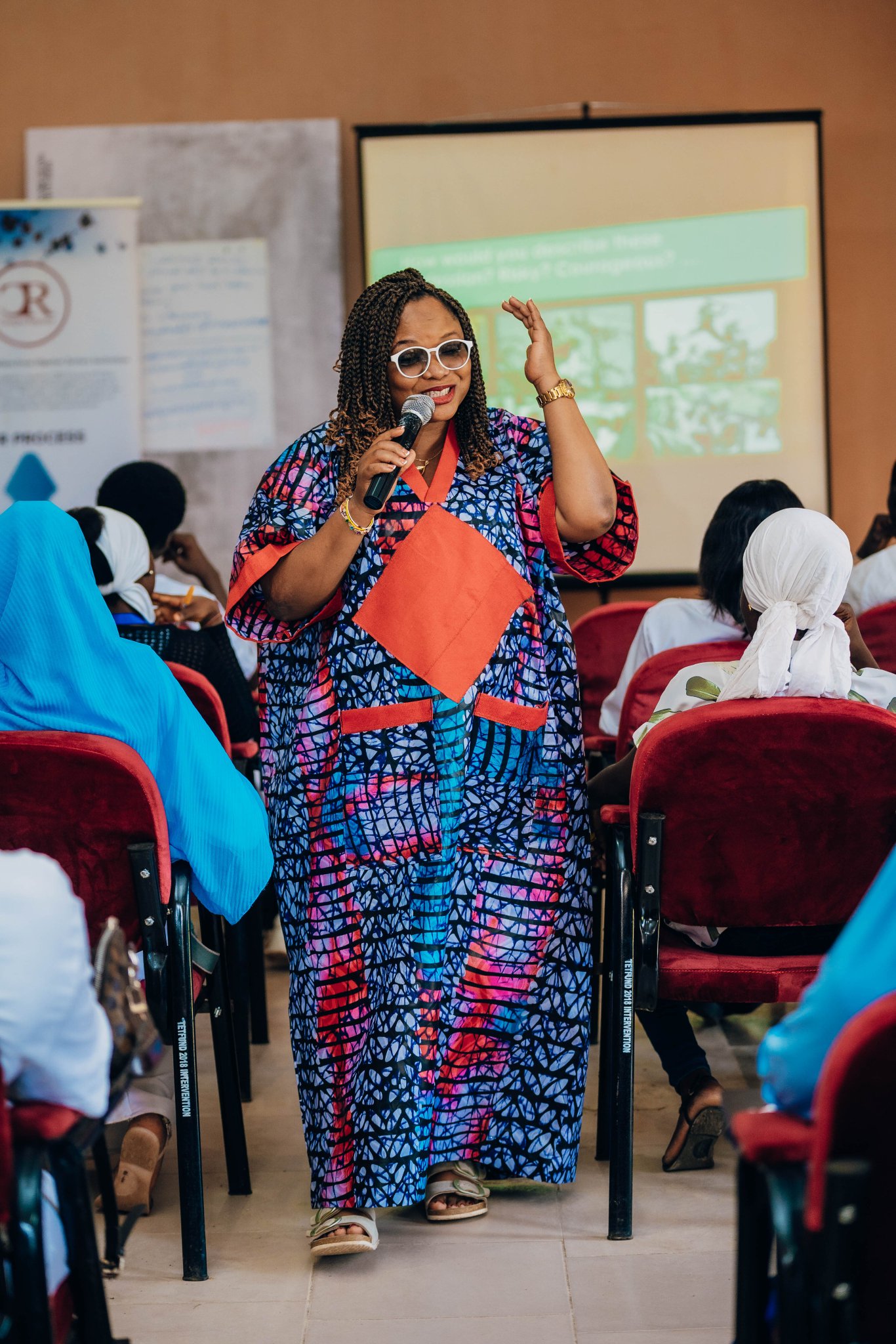
As the training concluded on its fourth day, she lauded the quality of the stories presented, affirming the achievement, and said her team had decided to give each of the group #50,000.
“On this fourth day that we are leaving and with the quality of the stories they have shared, we will say we have successfully achieved our goal.”
“On this fourth day that we are leaving and with the quality of the stories they have shared, we will say we have successfully achieved our goal.”She, however, encouraged participants to share their newfound knowledge with others and build upon the insights gained during this intensive training.”On this fourth day that we are leaving and with the quality of the stories they have shared, we will say we have successfully achieved our goal.”She, however, encouraged participants to share their newfound knowledge with others and build upon the insights gained during this intensive training.
Students Reaction
Barakat Tolani, a participant in the CJID training, shared her experience of the training and her newfound knowledge.
She said, “Have learned the way to check your facts when you get stories, checking whether the stories are right or wrong, multimedia training like editing your audio and video even with just your mobile phone, it is not a must you get a system before you can do so.
Afolabi Wasiu, praised the program’s practical approach, noting that while some topics were familiar, the hands-on training was invaluable.
He stressed the importance of practicality in journalism, asserting that true journalism demands proficiency in its practical aspects. The program, he added, broadened his understanding significantly.
His words: “Practical is very important in this aspect of life. If you claim to be a journalist but you are not well equipped with the practical aspect of journalism, then you are not practicing journalism.
“I love things being practical, when things are practical you have to know how to go about it. This program has helped me to develop that practical aspect of journalism and has been able to see far beyond what has been before most especially the practical aspect.”
Emmanuel Oluyemi expressed gratitude for the emphasis on solution journalism, distinguishing it from PR work.
He appreciated how the training equipped him to write solution-oriented stories, providing a fresh perspective on campus journalism. He noted that previously sensitive topics could be addressed constructively, benefiting both the school and the individuals involved.
“Solution journalism is one of the aspects that I’m very very happy that is brought to the table and how it is not the same thing as PR because most of the time there is a misconception that solution is as PR.”
Edun, Yusuf reflected on the transformative impact of the training, noting that it shifted him from a state of being uninformed to a reformed individual.
He pondered over a longstanding concern regarding why campus journalism or Press Clubs often refrained from exposing instances of misconduct and exploitation by certain authorities on campus.
However, he found clarity through CJID’s facilitators, who emphasized that journalism should transcend advocacy or fomenting division in society. Instead, they stressed the role of a journalist as a mediator or impartial third party, tasked with listening to both sides and proposing constructive solutions.
What truly resonated with Yusuf was the Fact-Checking course. He cherished invaluable insights into various websites that can be utilized to authenticate the accuracy of videos, determining their origin and context. Additionally, he appreciated the guidance on navigating different platforms to verify the legitimacy of news items.
According to him, this aspect is indispensable for any journalism student seeking to avoid the pitfalls of inaccuracies.
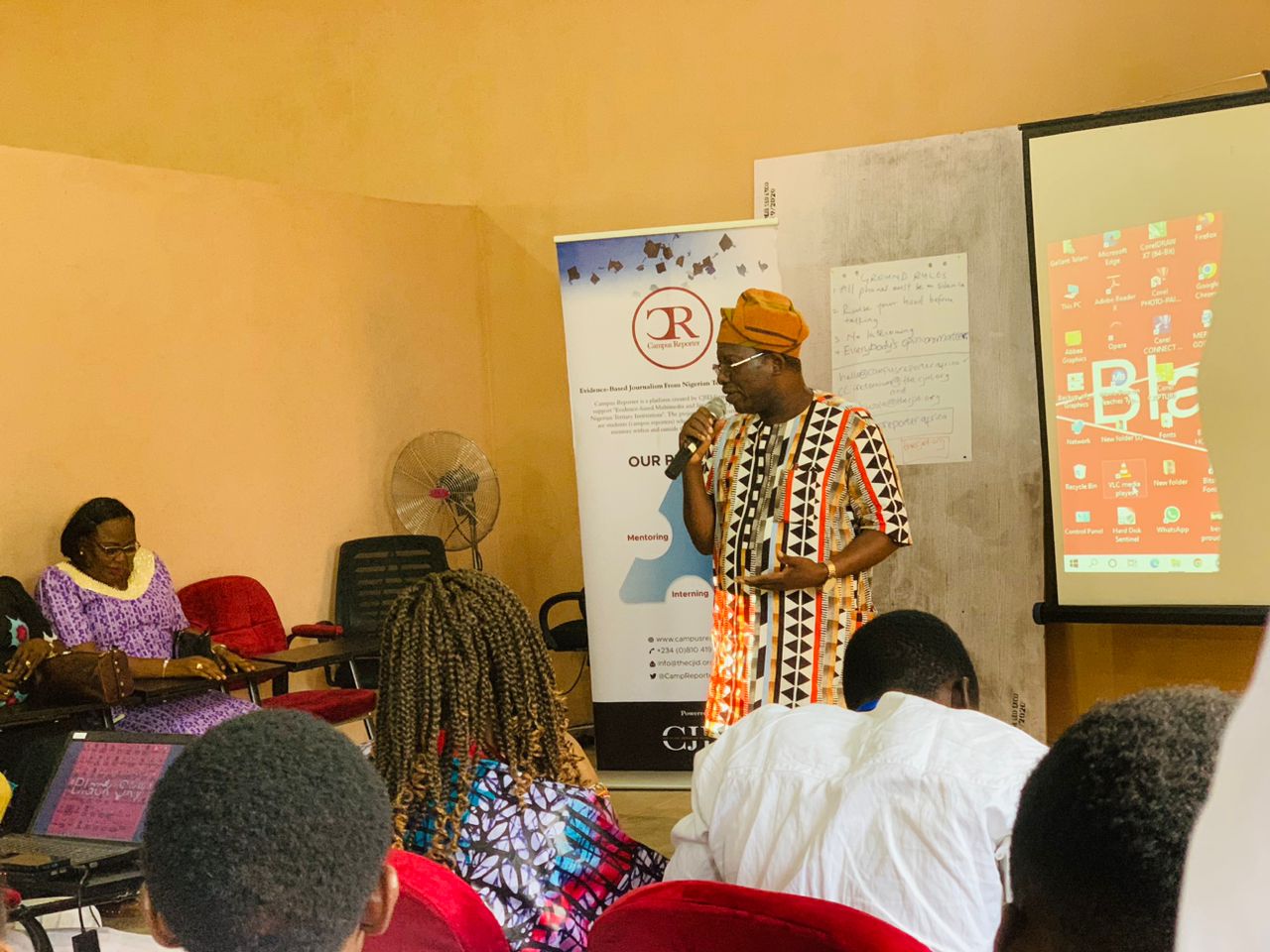
Dr. Adeoye Odedeji, the esteemed Rector of Moshood Abiola Polytechnic, expressed his heartfelt gratitude towards the efforts of the Centre for Journalism, Innovation, and Development (CJID) for the resounding success of its four-day program within the institution. He conveyed his appreciation during the closing session of the event.
The Rector was joined by a delegation including the Deputy Rector, Dr. (Mrs.) Lanre Iyanda, Registrar, Mrs. Olubunmi Elewodalu, Mr. Fatai Yekini, P.R.O Yemi Ajibola, Dr. Amos Kolawole (D.S.A), Sub-dean for Part-Time, Dr. Sola Adeosun, and Head of Department of Mass Communication, Mr. Lekan Togunwa.
